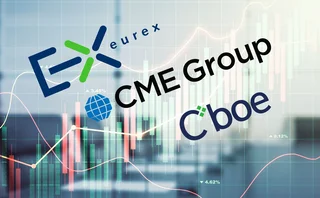
Information asymmetry

As corporate derivatives litigation activity intensifies in the region, with cases flaring up from India through to South Korea, a number of common themes are starting to emerge. Perhaps the most striking is the expectation that hedging, which is designed to act as a form of insurance, comes for free.
This conceptual flaw lies at the heart of the problem with many trades that were put on to hedge against, say, the further appreciation of a home currency against the US dollar or the price rise of commodity inputs such as energy or metals. Instead of just paying a premium to cover the cost of insurance against a possible unfavourable currency or commodity price move, corporations decided they could do trades far more cheaply by taking on another risky position where they would receive a guaranteed premium but may need to pay out should the position work out against them - they effectively offered hedges to banks.
Many of the region's airlines, shipping companies and exporters put on these trades. Some companies are now trying to extricate themselves from these costly contracts by claiming they did not fully understand what they were signing up to. Bankers, meanwhile, claim companies must have known that nothing comes for free.
Clearly there are issues regarding information asymmetry. Can a mid-sized corporate really understand exotic options positions as well as a major dealer? For a start, the corporate is unlikely to have access to anything like the amount of flow information available to a bank. The term 'buyer beware' also takes on a new meaning when, as our cover story mentions, some Korean corporates claim they didn't even understand the word 'buyer' in English in their knock-in, knock-out derivatives agreements. Are risks really being passed to the people that are best placed to manage them?
Despite the occasional scare in places such as South Korea, dealers have the odds stacked firmly in their favour from a legal perspective. Even savvy, native English-speaking hedge fund managers whose trading abilities are arguably better than many bank counterparts were caught out by standardised legal documents in September last year when Lehman Brothers went bankrupt.
Being legally in the right, however, is not the same as being ethically correct. While some dealers deserve credit for refusing business to clients that fail to meet rigorous suitability tests, these institutions can't force such practices on their peers. And this ultimately undermines all efforts to promote self-regulation.
Christopher Jeffery.
Only users who have a paid subscription or are part of a corporate subscription are able to print or copy content.
To access these options, along with all other subscription benefits, please contact info@risk.net or view our subscription options here: http://subscriptions.risk.net/subscribe
You are currently unable to print this content. Please contact info@risk.net to find out more.
You are currently unable to copy this content. Please contact info@risk.net to find out more.
Copyright Infopro Digital Limited. All rights reserved.
As outlined in our terms and conditions, https://www.infopro-digital.com/terms-and-conditions/subscriptions/ (point 2.4), printing is limited to a single copy.
If you would like to purchase additional rights please email info@risk.net
Copyright Infopro Digital Limited. All rights reserved.
You may share this content using our article tools. As outlined in our terms and conditions, https://www.infopro-digital.com/terms-and-conditions/subscriptions/ (clause 2.4), an Authorised User may only make one copy of the materials for their own personal use. You must also comply with the restrictions in clause 2.5.
If you would like to purchase additional rights please email info@risk.net
More on Markets
Ice’s AFX swoop shines spotlight on Ameribor prospects
CEO John Shay steps down after exchange group buys firm for mortgage and index synergies
Franklin Templeton dethrones MSIM as top FX options user
Counterparty Radar: MSIM continued to cut RMB positions in Q3, while Franklin Templeton increased G10 trades
Lenders scramble to get ahead of Italian fallback mandate
New law requiring robust fallbacks for Euribor will take effect on January 10
FX automation key to post-T+1 success, say custodians
Custody banks saw uptick in demand for automated FX execution to tackle T+1 challenges
Review of 2024: as markets took a breather, firms switched focus
In the absence of major crises and rules deadlines, financial firms revamped strategy, services and practices
Cboe plans Q2 dispersion futures listing
Expectations of post-US-election uncertainty drives launch, and could help bank equity desks hedge OTC risks
Futures exchanges look to ride credit ETF wave
Proponents hope for increased buy-side trading, with three exchanges competing for market share
Doubts raised over new FX platform disclosures
New disclosure sheet template will require platforms to outline how they charge for data








